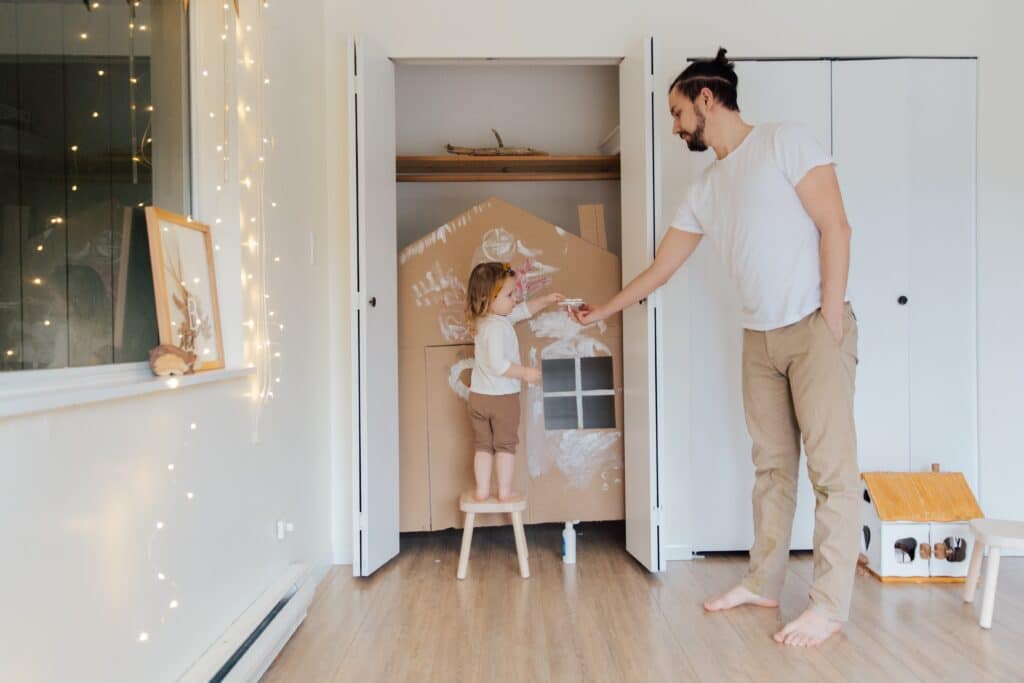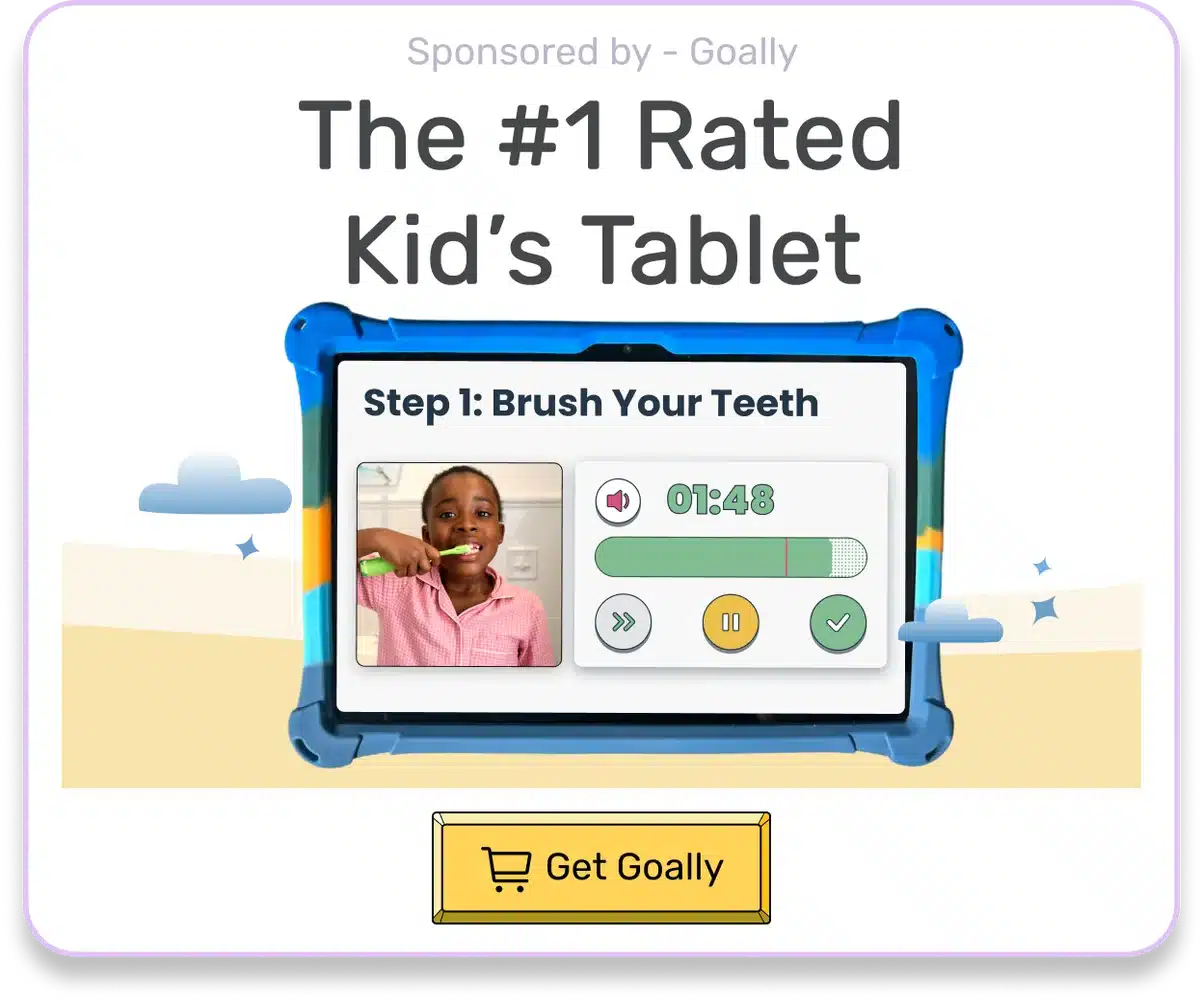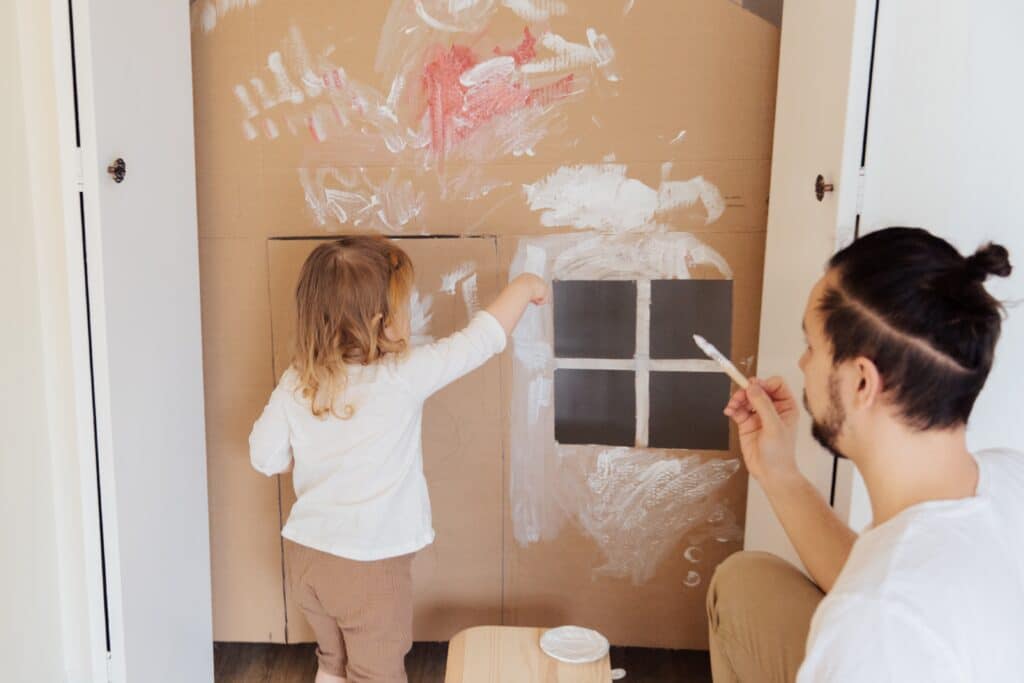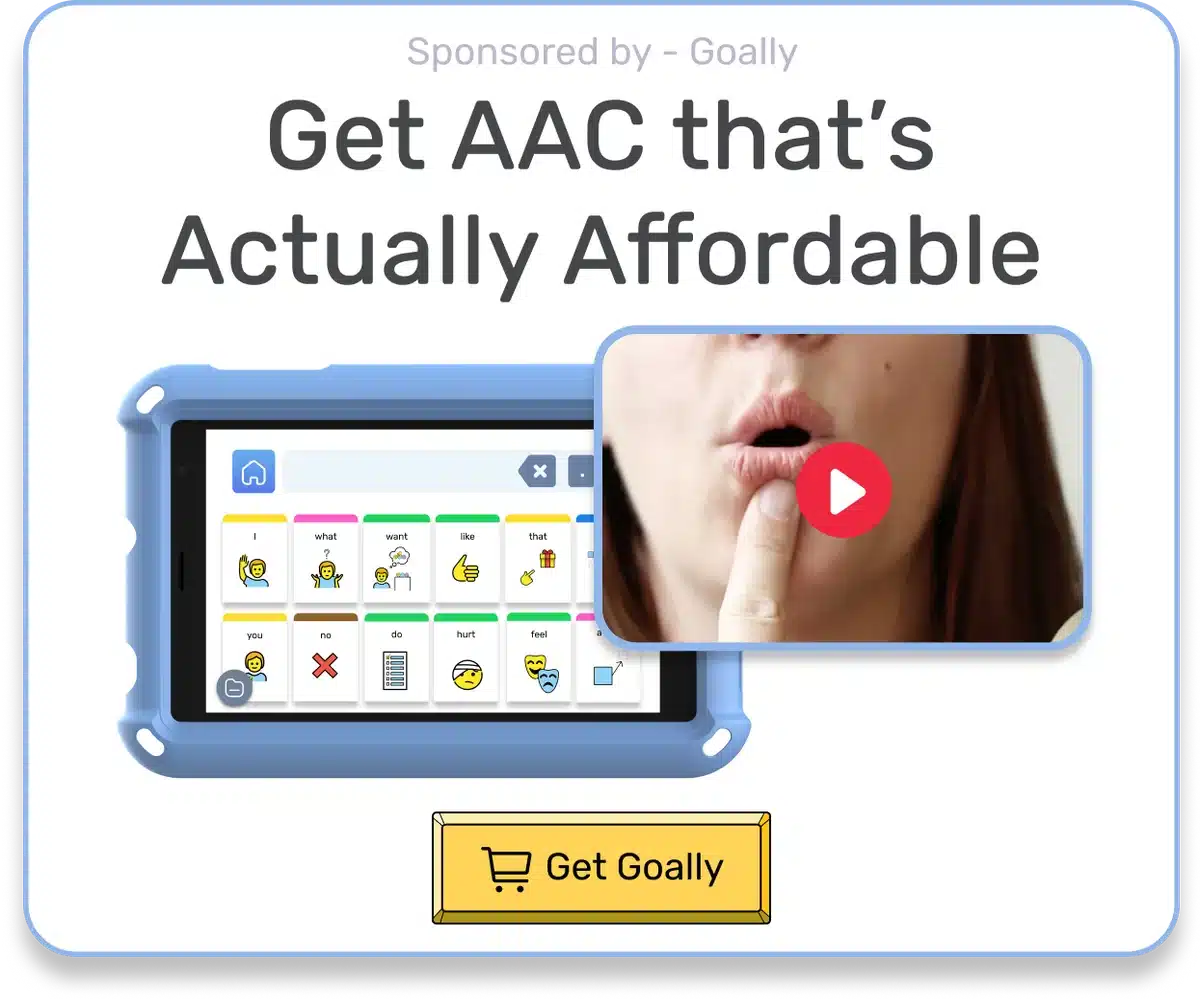More than 3.6 million babies are born every year in the United States, so many children are developing at different rates across the country. Most babies say their first words between 10 and 15 months old, with most starting at about 12 months. However, you’ll start to hear the early stages of verbal communication shortly after birth. Watching your child reach milestones can be stressful as a parent. What should you do if your 2-year-old is not talking? Read on to find out everything you need to know.
Table of Contents
Support Your Child’s Language Development
If your 2-year-old is not talking, this could signify a need for development support. You can do several things to support your child’s language development, such as speech therapy and language learning apps.
Goally is an excellent choice for many children who have language impairments. Goally’s suite of therapy apps includes an AAC talker and interactive language learning games that are perfect for any kid who loves looking at a screen. But don’t worry, with our distraction-free tablet, your child’s screen time will be fun and constructive at the same time.
When Do Children Start Talking?
Children’s language development starts from the day they are born. Early language development begins with listening and taking in the sounds around them. This is why talking to your baby is extremely important from day one. Your child will soon start testing out their voice. From birth to three months old, they will make cooing and crying sounds. Around the four to the six-month mark, they will start laughing, giggling, and making other playful noises.
| Age | Speech and language milestone |
|---|---|
| Around four months | Babies may start saying “ah-goo” |
| Around six months | Babies start to babble |
| Around six months | Babies may start saying “dada” |
| Around 18 months | Babies begin to pick up more words and combine them into simple sentences. They can say as many as 50 or more words. |
| Around two years | Babies start putting together simple words into phrases and sentences |
| One year old | Can say anywhere between 0-5 words |
At around 12 months, most babies start trying to express themselves and copy sounds. This might include them making repetitive noises (babbling), such as “ba ba ba” or “da da da.” Most babies find plosive sounds easiest to make.
Read more: Speech Delay Test for Kids
This might not sound like the speech we are familiar with as adults. However, they will also start testing out single words during this time. This can start around the 18-month mark. During this time, most children will continue babbling. They will also use pointing and gesturing to communicate with you. Around the age of two, most babies regularly use single or two-word phrases. Usually, this is to deliver instruction, such as “more food” or “mummy go.”
How Much Do 2-Year-Olds Usually Talk?
From 18 months to 2 years, children’s language development can vary a lot. Some 18-month-olds will use ten words, while others might know 30 or even 50. This can start slowly and develop as your child becomes more confident using words to communicate with you. Most pediatricians expect 2-year-olds to be using at least 50 single words or phrases.

Read More: Autism vs Down Syndrome
Signs That Your Child Has Delayed Speech
It is important to note that a nonverbal toddler will not just be silent. Your child may have moved through the other stages of language development at a similar age to other children. A lot of nonverbal toddlers will find different ways to communicate. As someone who has contact with them on a regular basis, it can be easy to overlook these. You will simply adjust to your child’s chosen method of communication.
Doctors and speech specialists will ask about the number of words your child uses. If they are using less than 50 words, this indicates that your child has delayed speech.
However, they may also ask you if your child:
- Gestures and uses facial expressions a lot to communicate
- Points for things they want rather than naming them
- Physically gets things to show you rather than naming them
- Gets frustrated when they cannot make themselves understood
- Avoids eye contact, especially with strangers
- Prefers to communicate with a few chosen adults, such as you and your partner
- Can communicate with other children around them
- Reacts to noises around them or responds when you call their name
Goally | The Tablet for Neurodiverse Kids

Read More: Does My Child Need Speech Therapy?
Common Reasons For 2-Year-Olds Not Talking
There are a lot of reasons why your child might have delayed language. Understanding the reason why your 2-year-old is not talking yet will make it easier to get them the support they need.
Delayed speech can be a sign of a number of medical diagnoses, including:
- Autism spectrum disorder (ASD)
- Down syndrome
- Hearing impairments
- Cerebral palsy
Several factors can delay language learning. Younger siblings often take longer to talk than older siblings. This is because they have someone to talk to them. Children born during the COVID-19 pandemic have less access to daily communication.
For some children, this has caused major delays in their speech development. It is very difficult for you to determine the cause of your child’s delayed speech by yourself. Because of this, it is important to seek professional support if your child is not using single words by the age of two.

Read More: What is Fetal Alcohol Syndrome?
What To Do If Your 2-Year-Old is Not Talking
If your child is not talking around two years old, it is a good idea to speak to a healthcare professional. They will want to see your child in person. They will carry out a physical examination for hearing impairments. They will also ask you about other behaviors or symptoms that you have noticed about your child. It can help to make a note of these in advance, as it can be difficult to think of them off the top of your head.
Most importantly, healthcare professionals will be able to refer you and your child for further support. Studies show that early interventions can make a big difference when it comes to speech development. So it is a good idea to speak to someone sooner rather than later if you have concerns about your child’s speech. Your doctor may refer you to a number of specialists depending on their diagnosis. This can include putting you in touch with a speech therapist or an ASD specialist.
Augmentative & Alternative Communication (AAC)
You might consider looking into augmentative and alternative communication (AAC). AAC is a term professionals use to describe how we communicate alongside spoken words or instead of spoken words. Children who struggle to communicate with spoken words should have access to several different types of AAC, all coming together to form the child’s AAC System. There are many different types of AAC devices; including sign language, picture boards, and high-tech devices like Goally.
If you are looking for ways to support your child’s learning, then Goally is here to help. Not only do our apps have expert-informed designs, but we also have SLPs on staff who continuously work to improve the quality of the services we provide. Ask your provider if Goally is right for your child’s AAC system.
Best Parent-Approved AAC App:
Goally comes with an easy-to-use, fully customizable AAC device to help kids communicate. If you’re on a waitlist, this is the fastest way to get your child access to an AAC Talker and start communicating!
Contact Your Doctor For Next Steps
If your 2-year-old or very active toddler is not talking; this may be a sign that they need developmental support. It is a good idea to speak to your doctor to figure out why your child is not talking. They will be able to refer you to a specialist to suit your child’s needs. Until then, check out Goally’s language learning apps today, and let us know if you have any questions in the comments.
This post was originally published on 10/04/2022. It was updated on 01/10/2024.
Editor’s note: This information is not meant to diagnose or treat and should not take the place of personal consultation, as needed, with a qualified healthcare provider and/or BCBA.

Goally
We help parents teach their kids life skills, like doing bedtime and morning independently. Backed by science, we incorporate evidence-based practices and expert-informed designs in all of our apps and content.






